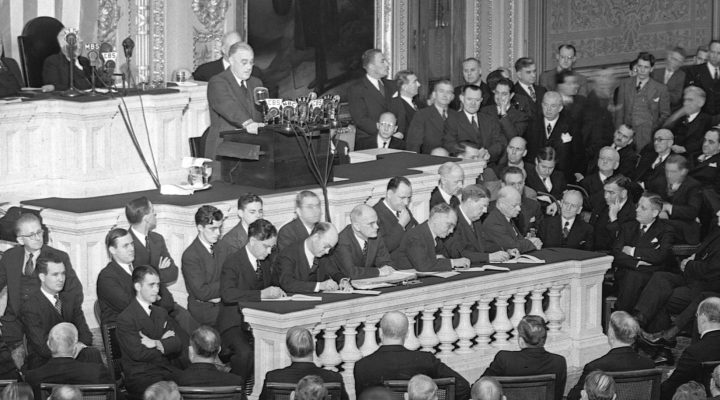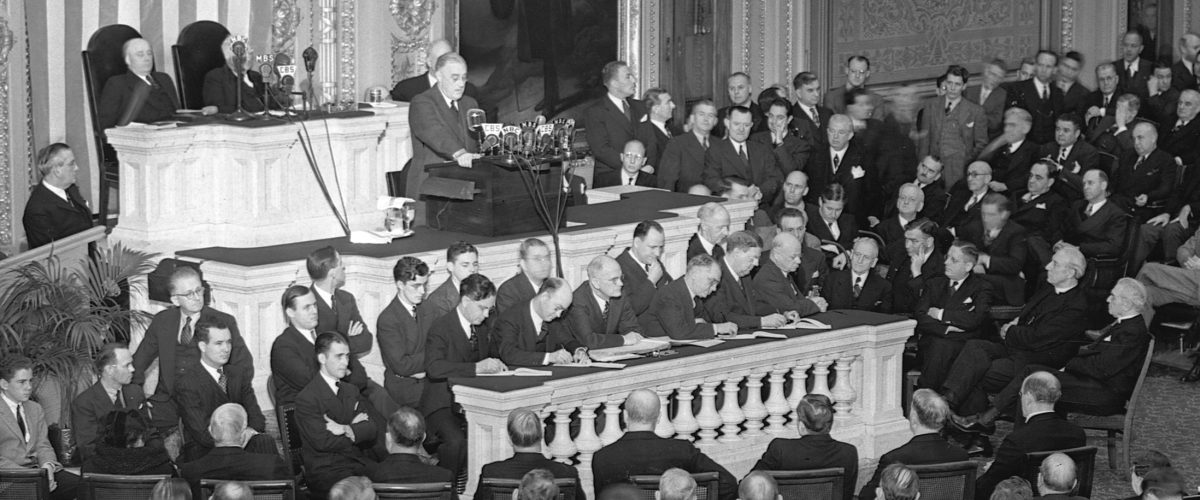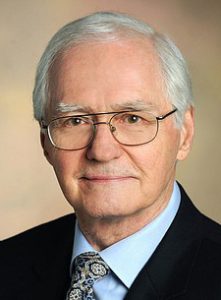Here it is, five weeks since the election, and I’m still looking for America.
The new administration isn’t shaping up like any America I recognize. Principles of governance thousands of American soldiers fought and died for have been set aside in favor of grievance, revenge and ridicule: Principles such as the rule of law, an independent judiciary and a free press are being set aside in favor of loyalty to the chief executive.
Like the kid in Simon and Garfunkel’s 1967 song America, lots of Democratic voters are thinking: “I’m empty and aching, and I don’t know why. I’m counting the cars on the New Jersey Turnpike. They’ve all come to look for America. All come to look for America.”
Unlike that kid in the ’60s however, I’m not wasting my time counting the cars on the New Jersey or any other turnpike. I know where to look for America. Two hundred seventeen miles south of Newark is Washington, D.C., and that is where, on January 6, 1941, President Franklin Roosevelt delivered his state of the union speech, better known as his Four Freedoms speech.
Eighty-three years ago, and only 16 months after Germany invaded Poland, igniting World War II, FDR articulated another in a long line of classic statements of the American democratic ideal. The speech stands in the tradition of the Constitution, the Declaration of Independence, the Gettysburg Address and Lincoln’s Second Inaugural. In it, Roosevelt captured the American values that were urgent during those dark days. Their urgency remains today. A mere 11 months after that speech, Japan attacked Pearl Harbor and thousands of American heroes died defending those very freedoms.
The Four Freedoms he articulated were freedom of speech, freedom of religion, freedom from want, and freedom from fear.
First, he named “freedom of speech and expression.” American citizens must be free to disagree, out loud and in public, with those in power about the policies and practices that affect their lives and the lives of their families and neighbors. We must not permit political dissent to be redefined as a crime. This is the America I recognize and will work to preserve.
“We must not permit political dissent to be redefined as a crime.”
Second is freedom of religion. As Roosevelt put it, “freedom of every person to worship God in his own way.” That means the state must not favor any one religious tradition over another and the state is not to be the religious educator of its citizens.
Colonial Baptists, Methodists, Quakers and others were persecuted under the prevailing practice of state-sponsored religion in the 13 original colonies. The America I recognize makes sure religious practice is free of interference by the state and the state is free of interference from religious partisans.
Third, there is freedom from want. To FDR that meant “economic understandings which will secure to every nation a healthy peacetime life for its inhabitants.”
Interesting that he saw “freedom from want” in terms of personal health. “A healthy peacetime life” starts, of course, with having enough to eat, but that is not enough: adequate food, yes, but also clothing and shelter. The America I recognize provides opportunities for all to make a living wage and to improve their standard of living over time.
Finally, there is freedom from fear. Roosevelt was concerned — as he should have been (when war was raging in Europe) — with international threats stoking fear in American citizens. Today, however, the president-elect has stoked fear of threats from within our own borders: from immigrants, the “deep state,” the press, Democrats.
Roosevelt knew fear is a crippling emotion that short-circuits clear-headed, rational judgment. Fear may even drive people into the arms of a would-be dictator who promises to eliminate their fears.
“Fear may even drive people into the arms of a would-be dictator who promises to eliminate their fears.”
FDR closed his speech with this hopeful reflection on the state of the union in those dark days of 1941. We need to hear it again today: “This nation has placed its destiny in the hands and heads and hearts of its millions of free men and women; and its faith in freedom under the guidance of God. Freedom means the supremacy of human rights everywhere. Our support goes to those who struggle to gain those rights or keep them. Our strength is our unity of purpose. To that high concept there can be no end save victory.”
If you, too, are looking for America, look no further than freedom of speech, freedom of religion, freedom from want and freedom from fear.
Richard Conville is professor emeritus of communication studies at the University of Southern Mississippi and a 46-year resident of Hattiesburg, Miss. This column was published in the Dec. 5 issue of The Pine Belt News in Hattiesburg.



